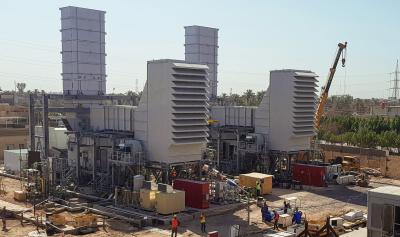Construction Companies in Iraq: Building a New Era
-
In recent years, construction companies in Iraq have played a pivotal role in transforming the country’s urban landscape and infrastructure. After decades of conflict and instability, Iraq is witnessing a resurgence in construction activity, fueled by both public and private sector investments. The demand for modern housing, commercial spaces, roads, and essential utilities is at an all-time high, driving innovation and competition among local and international construction firms. This article explores the evolution, challenges, and opportunities facing the construction industry in Iraq, with a spotlight on how these companies are shaping the nation’s future.
The Evolution of Iraq’s Construction Sector
The construction industry in Iraq has a rich history dating back to ancient Mesopotamia, where some of the earliest architectural marvels were built. However, the modern era has presented its own set of challenges and opportunities. Post-2003, reconstruction became a national priority, with billions of dollars allocated to rebuild critical infrastructure such as highways, bridges, airports, schools, and hospitals. Construction companies in Iraq have since become key drivers of economic recovery, job creation, and social development.
Key Challenges Facing Construction Companies
Despite the growing demand for infrastructure, construction companies in Iraq face several obstacles:
- Security Concerns: Ongoing security challenges in certain regions pose risks for construction projects, often causing delays or leading to higher operational costs.
- Regulatory Hurdles: Navigating Iraq’s complex regulatory landscape can be time-consuming, particularly for foreign investors and contractors.
- Resource Constraints: Shortages of skilled labor, building materials, and advanced machinery sometimes impede progress, especially in remote areas.
- Financing Difficulties: Limited access to capital and fluctuating oil prices can affect project timelines and profitability.
Despite these challenges, many construction firms have found innovative ways to adapt, leveraging local expertise, forming joint ventures, and investing in workforce training.
Opportunities on the Horizon
While obstacles persist, the outlook for Iraq’s construction sector remains optimistic. Several factors are contributing to this positive trend:
- Government Investment: The Iraqi government continues to prioritize infrastructure in its national development plans, supporting projects in transportation, energy, healthcare, and education.
- Private Sector Growth: A growing middle class and increased foreign direct investment have led to a surge in private residential and commercial developments.
- Technological Advancements: Adoption of modern construction techniques and digital project management tools is improving efficiency, quality, and safety on job sites.
Spotlight on MUE Group
Among the many players in the industry, MUE Group stands out as a leader in Iraq’s construction landscape. With decades of experience and a commitment to quality, MUE Group has successfully delivered a wide range of projects, from residential complexes to large-scale infrastructure works. The company’s strong local presence, combined with its adoption of global best practices, has earned it a reputation for reliability and excellence. MUE Group’s focus on sustainable construction and community engagement reflects the evolving priorities of Iraq’s development agenda.
The Role of Construction Companies in Economic Development
The significance of construction companies in Iraq extends beyond physical structures. These firms contribute to national progress by:
- Creating Jobs: The construction sector is one of the largest employers in the country, providing opportunities for engineers, architects, skilled workers, and laborers.
- Boosting Allied Industries: Construction activities stimulate demand for materials, equipment, transportation, and support services, benefiting a wide array of local businesses.
- Urban Renewal: Modern construction projects are revitalizing cities, improving living standards, and attracting both local and international investment.
Sustainability and Future Prospects
As Iraq continues to rebuild and modernize, sustainability is becoming a key focus for the country’s construction sector. Companies are increasingly adopting green building practices, energy-efficient designs, and environmentally friendly materials. This shift not only helps protect the environment but also positions Iraq as a competitive player in the global construction market.
Looking ahead, the industry is expected to benefit from ongoing reforms, increased foreign investment, and a growing emphasis on digital innovation. Emerging trends such as modular construction, smart cities, and infrastructure resilience are likely to influence the next wave of development.
Conclusion
In summary, construction companies in Iraq are at the forefront of a transformative era, overcoming challenges and seizing opportunities to drive national development. With leaders like MUE Group setting high standards for quality and sustainability, the future of Iraq’s construction sector looks promising. As the country continues to rebuild and expand, these companies will remain essential partners in shaping a brighter, more prosperous Iraq.
